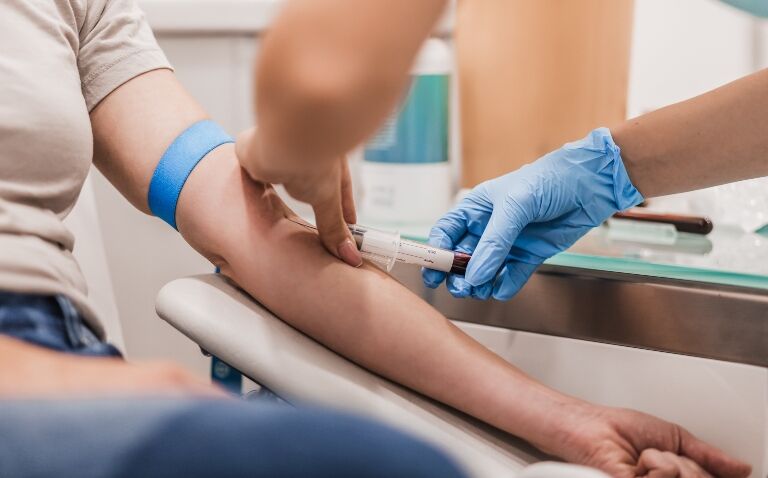A new blood test detecting over 50 types of cancer has shown promising results in a recent NHS clinical trial, according to researchers.
The SYMPLIFY study was set up in 2021 to trial the Galleri blood test on over 6,000 patients in England and Wales who had been referred by their GP for diagnostics following identification of potential cancer symptoms.
The results, which were presented at the American Society of Clinical Oncology meeting in Chicago on 3 June 2023, showed ‘strong performance’ of the multi-cancer early detection (MCED) test.
The study was run by the University of Oxford and supported by GRAIL, the US-based company that developed the Galleri MCED test.
Of the 5,461 evaluable patients, the test correctly identified two-thirds (66.3%) of those who were diagnosed with cancer through normal care procedures.
This sensitivity increased with age and late cancer stage, with 95.3% accuracy for stage IV cancer.
After a positive MCED test, Galleri correctly identified the origin site of the cancer in 85.2% of cases.
Expediting cancer diagnosis
The NHS patients involved in the study were those who had been referred by their GP for urgent imaging, endoscopy or other diagnostic tests to investigate symptoms of potential gynaecological, lung, lower GI or upper GI cancer, or who had non-specific symptoms.
Alongside completing these investigations, patients provided a blood sample so that the MCED could be performed.
Cancer was diagnosed through usual NHS procedures in 368 patients, and the MCED detected a cancer signal in 323 people, 244 of whom had been diagnosed.
This means 75.5% of those testing positive with Galleri were found to have cancer, and 2.4% of those testing negative were found to have cancer.
Professor Brian D. Nicholson, a GP, associate professor at the University of Oxford and co-lead investigator for the study, said new tools are needed to ‘expedite cancer diagnosis and potentially avoid invasive and costly investigations’.
Of the results, he added: ‘The high overall specificity, positive predictive value and accuracy of the cancer signal detected and cancer signal origin prediction that was reported across cancer types in the SYMPLIFY study indicate that a positive MCED test could be used to confirm that symptomatic patients should be evaluated for cancer before pursuing other diagnoses.’
Dr David Crosby, head of prevention and early detection research at Cancer Research UK, said: ‘The findings from the study suggest this test could be used to support GPs to make clinical assessments, but much more research is needed in a larger trial to see if it could improve GP assessment, and ultimately patient outcomes.’
While this study showed a strong performance for the use of MCED with symptomatic patients, the NHS is also running a study with around 140,000 volunteers aged 50-77 to trial the Galleri test alongside existing cancer screening for asymptomatic patients.
In May, NHS England tasked hospitals with turning around diagnostic test results for suspected cancer within 10 days.
A version of this story was originally published by our sister publication Pulse.










